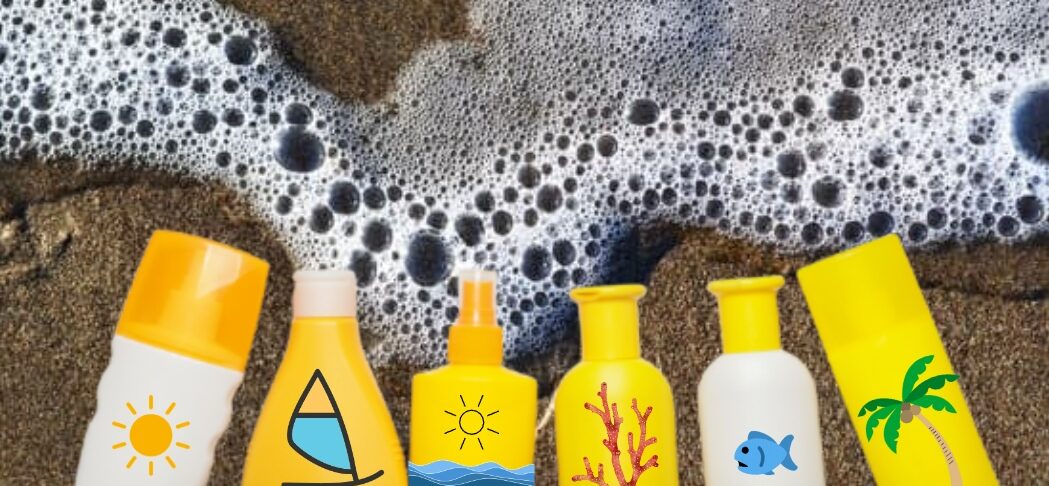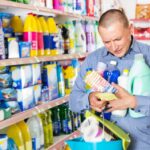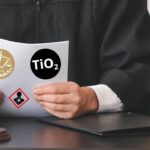
Nanomaterials in sunscreens: still too many non-conformities
Inspections carried out by the French fraud control authority (DGCCRF) on suncare products continue to find too many recurring non-compliances regarding the presence of nanomaterials above authorized thresholds and/or the non-labeling [nano] of UV filters. Ingredient suppliers and cosmetics brands are required to take steps to comply, failing which the products concerned will be withdrawn from the market.
In a press release published on November 17, the DGCCRF reports worrying results, in the same vein as those published at the end of 2022 and 2021.
16 suncare products inspected: 16 non-conformities found
Of the 16 products inspected by the DGCCRF in 2022, 16 non-conformities were found involving nanomaterials of titanium dioxide and/or zinc oxide:
- 13 products containing nanomaterial sunscreens that do not comply with the particle size limits set by the Cosmetics Regulation
- 3 sunscreens containing unlabelled nano] nanomaterials.
Manufacturers asked to reformulate their products
The DGCCRF specifies that while some anomalies “may give rise to expert debates”, others are more clearly established: for the latter, the DGCCRF is therefore asking solar product manufacturers to provide action plans for compliance. In concrete terms, this means reformulating and/or labeling [nano] the products concerned, otherwise they will be withdrawn from the market.
Suppliers too must review their practices
The DGCCRF’s checks also covered the raw materials sold by suppliers to cosmetics brands, and the information that the former, upstream in the chain, provide – or fail to provide – to customer companies.
As in previous years, the DGCCRF found that “non-nano” claims were erroneous or unsupported by evidence, and that there were shortcomings in the communication of data on the ingredients used.
Suppliers’ shortcomings in terms of both characterization and B2B (“business to business”) information complicate the task of cosmetics brands.
Following its investigations on 25 upstream suppliers and 13 downstream user companies, the DGCCRF issued 2 injunctions, 7 warnings and 31 information letters.
The message, which has been repeated for several years now, can no longer be ignored: the characterization of ingredients to determine whether or not they are nanomaterials, as well as “clear, fair, and complete” information, backed up by appropriate analyses, on whether or not the ingredients are [nano], are both mandatory.
Only a few months to go before summer and compliance!

Nos fiches pour approfondir…
Les autres actus sur le sujet
Les prochains RDV nano
- Introductory seminar on the principles of Life Cycle Assessment (LCA) and its specificities when applied to nanomaterials (metal nanoparticles, oxides, etc.), from their production to their end-of-life.
- Organizer: NaMasTE research group (Manufactured Nanomaterials, Toxicology, Ecotoxicology and Risks: Towards Controlled Development)
- Speaker: Gaetana (Tania) Quaranta, Senior Lecturer, University of Strasbourg – IPHC
- Website: https://gdr-namaste.cnrs.fr/

- Webconference for analysis laboratories, plant fertilizer manufacturers and distributors, public authorities…
- Moderated by David Krupka, nanotechnologies development manager at AFNOR Normalisation and Emilie Langlois-Bertrand, nantechnologies standardization project manager.
- In partnership with Armand Masion (CEREGE) and Patrice Charpentier (ANSES).
- This exchange will also be an opportunity to explore the creation of a national platform to identify standardization needs.
- Website: https://www.afnor.org/evenements/qualite/nanotechnologies-agriculture-cadre-pratique-responsable

- International conference on metallic nano-objects for experts working in the interdisciplinary field of metallic nanoparticles, with a particular emphasis on nanoparticle synthesis and characterization, plasmonics, optics and photonics, catalysis, biomedicine, electronics, and nanoparticle recycling
- Organizers / Partners: CNRS, Bordeaux University, Bordeaux INP, ICMCB, CRPP, CBMN, ISM
- Website: https://mno2026.sciencesconf.org



